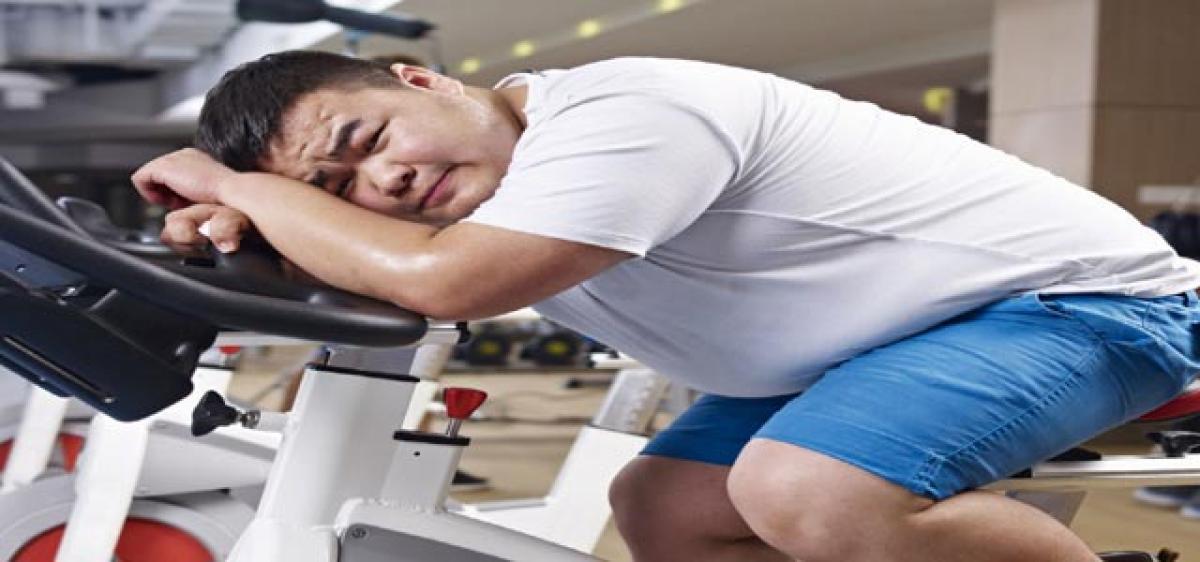Live
- Beware of bacterial predators
- Empowering youth for Viksit Bharat
- Antibiotic Awareness Week (Nov. 18-24): Beware of bacterial predators
- MyVoice: Views of our readers 22nd November 2024
- Young Leaders Dialogue: Empowering youth for Viksit Bharat
- Drug abuse eating into vitals of our nation
- M4M’ Hindi trailer launches at IFFI
- ‘RAPO22’ launches with grandeur
- Drug abuse eating into vitals of our nation
- Sai Durgha Tej gets special gift
Just In

Feeling too lazy to hit the gym or follow an exercise routine? Your altered dopamine receptors critical for movement may be the reason behind your lack of motivation rather than excess body weight, a new study has suggested.
Feeling too lazy to hit the gym or follow an exercise routine? Your altered dopamine receptors critical for movement may be the reason behind your lack of motivation rather than excess body weight, a new study has suggested. The study challenged a common belief that obese animals do less physical activity, because carrying extra body weight is physically disabling.
"We know that physical activity is linked to overall good health, but not much is known about why people or animals with obesity are less active," said Alexxai V Kravitz from the National Institute of Diabetes and Digestive and Kidney Diseases (NIDDK)- a part of the National Institutes of Health in the US.
For the study, mice were fed either a standard or a high-fat diet for 18 weeks. Beginning in the second week, the mice on the unhealthy diet had higher body weight. By the fourth week, these mice spent less time moving and got around much more slowly when they did move.
The results showed that the high-fat diet mice slowed down their activity, but they did it before they actually got fat instead of after, suggesting that the excess weight alone was not responsible for the reduced movements.
The reason the mice were inactive was due to dysfunction in their dopamine systems. They had deficits in the D2 dopamine receptors, the researchers said.
"There are probably other factors involved as well, but the deficit in D2 is sufficient to explain the lack of activity," said Danielle Friend, postdoctoral student at NIDDK. The study appeared in the journal Cell Metabolism.

© 2024 Hyderabad Media House Limited/The Hans India. All rights reserved. Powered by hocalwire.com







